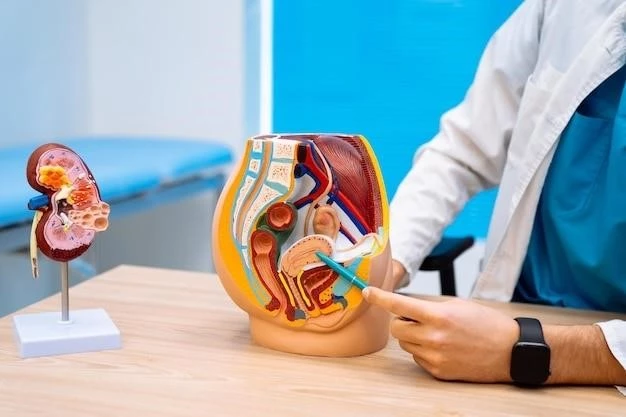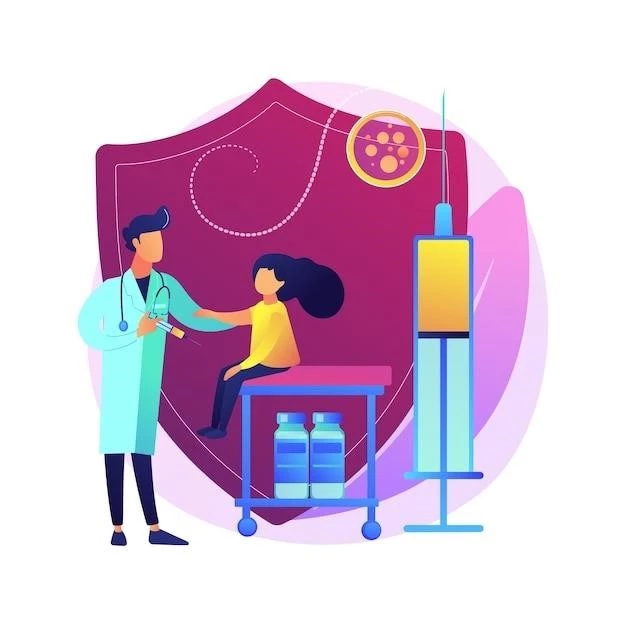Introduction to Polymyositis
Polymyositis (PM) is a type of chronic inflammation of the muscles related to dermatomyositis and inclusion body myositis․ It causes muscle weakness affecting both sides of the body and can make simple movements challenging․
Definition and Overview
Polymyositis (PM) is a chronic inflammatory disease that affects the muscles, leading to weakness and inflammation․ It typically impacts adults in their 30s٫ 40s٫ or 50s٫ making simple movements challenging․ The exact cause is not known٫ but it is believed to involve an autoimmune reaction or infection․ This condition can affect various muscle groups٫ causing difficulty in daily activities․

Causes and Risk Factors of Polymyositis
Polymyositis is an inflammatory myopathy that affects muscles, causing weakness and inflammation․ It may be triggered by an autoimmune reaction or infection․ This condition primarily affects adults and can lead to difficulty in performing daily activities․
Inflammatory Myopathy
Polymyositis is classified as an inflammatory myopathy, impacting the skeletal muscles and causing weakness and discomfort․ This condition is characterized by chronic muscle inflammation and the immune system targeting muscle tissue, leading to debilitating symptoms․ The inflammatory process in polymyositis primarily affects the endomysial layer of skeletal muscles․
Autoimmune Reaction or Infection
Polymyositis is a disease where the immune system attacks the body’s muscle tissues, leading to muscle inflammation and weakness․ It is often considered an autoimmune condition, although the specific autoantigens involved are yet to be fully understood․ Infection, particularly viral infections, may also trigger or exacerbate polymyositis․

Symptoms and Diagnosis of Polymyositis
Polymyositis is a rare inflammatory muscle disease characterized by muscle weakness and fatigue․ Symptoms include difficulty climbing stairs, lifting objects, and rising from a seated position․ Diagnosis involves assessing muscle strength, enzyme levels, EMG, autoantibodies, inflammation, and biopsy findings․
Common Symptoms
Polymyositis presents with muscle weakness affecting both sides of the body, making daily activities challenging․ Climbing stairs, lifting objects, and movements involving proximal muscles become difficult․ Individuals may experience fatigue, pain, and limited mobility․ Early diagnosis is crucial for proper management․
Diagnosis Methods
Diagnosing polymyositis involves a comprehensive approach, including assessing muscle weakness, enzyme levels, electromyography (EMG), autoantibodies, inflammation markers, and muscle biopsy findings․ These diagnostic methods help confirm the presence and extent of muscle inflammation and guide appropriate treatment strategies․
Treatment Options for Polymyositis
Corticosteroids are the first-line treatment for polymyositis, reducing inflammation and suppressing the immune system’s response․ Additionally, specialized exercise therapy may be recommended to maintain and improve muscle function․
First-Line Treatment⁚ Corticosteroids
Corticosteroids are the primary treatment for polymyositis, aiming to reduce inflammation and suppress the immune system’s abnormal response․ These medications have been effective in managing the symptoms and improving muscle function in individuals with polymyositis․
Specialized Exercise Therapy
When it comes to polymyositis treatment, incorporating specialized exercise therapy can be beneficial for improving muscle strength and function․ Physical activity tailored to individual capabilities can help manage symptoms and enhance the quality of life for individuals with polymyositis․
Impact of Polymyositis on Patients
Polymyositis results in muscle weakness and fatigue, affecting daily activities․ Patients experience challenges in mobility, such as climbing stairs and lifting objects․ Quality of life is significantly impacted by the limitations imposed by this condition․
Muscle Weakness and Fatigue
Individuals with polymyositis experience muscle weakness and fatigue, impacting their ability to perform daily tasks․ This condition affects proximal muscles, leading to challenges in activities like climbing stairs, lifting objects, and other movements․ Managing muscle weakness and fatigue is crucial for enhancing the quality of life for individuals with polymyositis․
Individuals with polymyositis face challenges in performing daily activities due to muscle weakness and fatigue․ Climbing stairs, lifting objects, and mobility limitations significantly impact their quality of life․ Managing symptoms and enhancing muscle function are crucial for improving their overall well-being․
Research and Advancements in Polymyositis
Clinical development of Froniglutide by ImmunoForge is a significant advancement in polymyositis therapy․ Exciting progress is being made in understanding this rare disease and improving treatment approaches․
Quality of Life Considerations
Living with polymyositis means facing challenges from muscle weakness and fatigue that impact daily activities․ Simple tasks like climbing stairs, lifting objects, or reaching overhead can become arduous due to the condition’s effects․ This leads to a significant decrease in quality of life for individuals dealing with polymyositis․
Current Research Focus Areas
Current research on polymyositis focuses on understanding the underlying mechanisms of muscle inflammation and weakness․ Studies aim to identify new treatment targets, improve diagnostic methods, and enhance overall management strategies for individuals with this rare inflammatory muscle disease․
Prognosis and Outlook for Polymyositis
The chronic nature of polymyositis requires long-term management to address complications․ Patients may face potential challenges, including muscle weakness, fatigue, and other health issues․ Effective management and treatment can enhance the prognosis and overall outlook for individuals living with polymyositis․
Chronic Nature of the Disease
Polymyositis is characterized by its chronic nature, requiring long-term management to address complications such as muscle weakness and fatigue․ Patients may experience challenges in performing daily tasks, emphasizing the need for continuous treatment and care to manage this condition effectively․
Potential Complications and Long-Term Management
Living with polymyositis may present various challenges and potential complications, including muscle weakness, fatigue, and decreased mobility․ Long-term management involves continuous treatment, exercise, and monitoring to address these issues effectively and enhance the quality of life for individuals with polymyositis․
